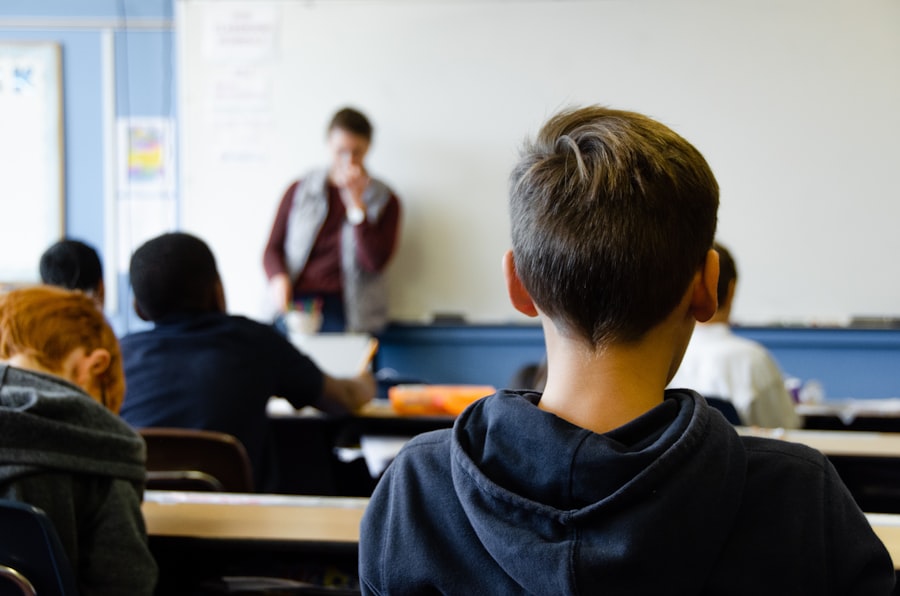Education serves as the cornerstone of any thriving society, acting as a catalyst for personal and collective growth. It equips individuals with the knowledge, skills, and critical thinking abilities necessary to navigate the complexities of modern life. Beyond mere academic achievement, education fosters a sense of civic responsibility and social awareness, enabling individuals to contribute meaningfully to their communities.
In this way, education is not just a pathway to personal success; it is a fundamental building block for a cohesive and progressive society.
Access to quality education can empower marginalized communities, providing them with opportunities that might otherwise be out of reach.
For instance, educational initiatives aimed at underprivileged areas can help bridge the gap between socioeconomic classes, fostering a more equitable society. By investing in education, societies can cultivate informed citizens who are capable of making decisions that benefit not only themselves but also the broader community.
Key Takeaways
- Education is crucial for the development and progress of society, as it equips individuals with the knowledge and skills needed to contribute to the community.
- Schools play a vital role as social institutions, providing a structured environment for learning, social interaction, and personal development.
- Schools serve as agents of socialization, shaping students’ beliefs, values, and behaviors, and preparing them to become active members of society.
- Community engagement is essential for schools to foster a sense of belonging and collaboration, creating a positive impact on the local community.
- Schools have the potential to influence social mobility by providing equal opportunities for all students to succeed and improve their socio-economic status.
School as a Social Institution
Schools function as vital social institutions that reflect and shape the values, norms, and expectations of society. They are not merely places for academic instruction; they are environments where social interactions occur, cultural norms are transmitted, and identities are formed. The structure of schools—ranging from the curriculum to the rules governing behavior—mirrors societal values and priorities.
For example, schools often emphasize the importance of punctuality, discipline, and respect for authority, which are qualities that are valued in the workforce and broader society. In addition to imparting knowledge, schools serve as microcosms of society where students learn to navigate social hierarchies and develop interpersonal skills.
This socialization process is crucial for developing a sense of belonging and community among students. Schools also play a role in reinforcing societal norms by promoting shared values such as cooperation, fairness, and respect for diversity.
Schools as Agents of Socialization

As agents of socialization, schools play a critical role in shaping the attitudes and behaviors of young individuals. From an early age, children learn not only academic content but also social skills that are essential for functioning in society. Through structured activities such as group projects, sports teams, and extracurricular clubs, students learn how to collaborate with others, resolve conflicts, and communicate effectively.
These experiences are instrumental in preparing them for future roles in both their personal lives and professional careers. Furthermore, schools provide a unique environment where students encounter individuals from various backgrounds, fostering an appreciation for diversity. This exposure is particularly important in multicultural societies where understanding different perspectives is essential for social cohesion.
Schools often implement programs aimed at promoting inclusivity and respect for differences, which can help mitigate prejudice and discrimination. By teaching students to value diversity, schools contribute to the development of a more tolerant and harmonious society.
Schools and Community Engagement
The relationship between schools and their surrounding communities is symbiotic; schools benefit from community support while also serving as resources for local residents. Community engagement initiatives can take many forms, including partnerships with local businesses, involvement in community service projects, and collaboration with parents and families. Such partnerships enhance the educational experience by providing students with real-world applications of their learning while also fostering a sense of responsibility toward their community.
Moreover, schools often serve as hubs for community activities, offering facilities for events such as town meetings, cultural celebrations, and recreational programs. This dual role strengthens the bond between schools and communities, creating an environment where education is viewed as a shared responsibility. When communities actively participate in the educational process, they contribute to a culture of support that can lead to improved student outcomes.
For instance, mentorship programs that connect students with local professionals can inspire them to pursue various career paths while also enriching the community’s investment in its youth.
The Impact of Schools on Social Mobility
Education is widely recognized as a key driver of social mobility—the ability for individuals to improve their socioeconomic status through education and hard work. Schools provide the foundational skills necessary for students to pursue higher education or enter the workforce equipped with relevant competencies. In many cases, access to quality education can significantly alter an individual’s life trajectory, opening doors to opportunities that would otherwise remain closed.
However, the relationship between education and social mobility is complex and influenced by various factors such as socioeconomic background, race, and geographic location. For instance, students from affluent families often have access to better educational resources, including experienced teachers, advanced placement courses, and extracurricular activities that enhance their college applications. Conversely, students from low-income backgrounds may face systemic barriers that hinder their educational attainment.
Addressing these disparities requires targeted interventions that ensure all students have equitable access to high-quality education.
Challenges and Opportunities for Schools in Today’s Society

In today’s rapidly changing world, schools face numerous challenges that impact their ability to fulfill their educational mission effectively. One significant challenge is the increasing demand for technology integration in classrooms. As digital literacy becomes essential for success in the modern workforce, schools must adapt their curricula to include technology-based learning while ensuring that all students have access to necessary resources.
This transition can be particularly challenging in underfunded districts where technology infrastructure may be lacking. Additionally, schools must navigate the complexities of mental health issues among students. The pressures of academic performance, social media influence, and family dynamics can contribute to rising levels of anxiety and depression among young people.
Schools are increasingly recognizing the importance of mental health support services within their institutions. By providing counseling resources and promoting mental wellness initiatives, schools can create a supportive environment that addresses the emotional needs of students. Despite these challenges, there are also significant opportunities for innovation within the educational landscape.
The rise of online learning platforms has expanded access to education beyond traditional classroom settings, allowing students to learn at their own pace and explore diverse subjects. Furthermore, collaborative approaches that involve parents, community organizations, and local businesses can enhance educational experiences by providing additional resources and support systems. In conclusion, while schools face numerous challenges in today’s society—from technological demands to mental health concerns—they also have unprecedented opportunities to innovate and adapt.
By embracing these changes and fostering strong community connections, schools can continue to play a vital role in shaping individuals who are not only academically proficient but also socially responsible citizens ready to contribute positively to society.
In exploring the connection between schools and society, it is important to consider the philosophical underpinnings that shape our understanding of education. One such philosophical framework is Aristotelian syllogistic logic, which delves into the structure of reasoning and argumentation. Understanding this logic can provide insights into how schools can better equip students to think critically and engage with the world around them. For a deeper dive into Aristotelian syllogistic logic and its implications for education, check out this article on Aristotelian syllogistic logic.
FAQs
What is the role of schools in society?
Schools play a crucial role in society by providing education and knowledge to the younger generation, preparing them for future careers and contributing to the overall development of society.
How do schools connect to society?
Schools connect to society by shaping the values, beliefs, and behaviors of students, as well as by providing a platform for social interaction and community engagement.
What impact do schools have on society?
Schools have a significant impact on society by shaping the future workforce, promoting social integration, and contributing to the overall well-being and progress of the community.
How do schools contribute to the development of society?
Schools contribute to the development of society by fostering critical thinking, creativity, and innovation, as well as by promoting social responsibility and civic engagement among students.
























+ There are no comments
Add yours